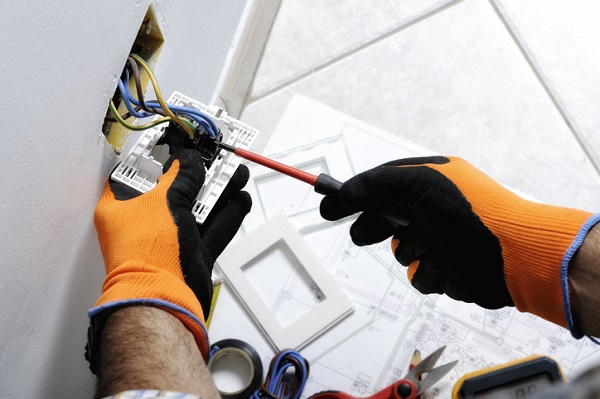The Best Residential Electrician Service in USA
A residential electrician is a professional who installs electrical systems in homes. This professional uses wiring protection measures, blueprints, and conduits to connect various parts of a home. They may also repair or maintain an existing home’s electrical system. In this article, we’ll explore the different duties of a residential electrician and how much it costs to hire one. You may also need to hire one for emergency repairs or installations. If you’re considering getting one for your home, be sure to follow these tips to ensure that you’ll get the right person for your job.
Qualifications to become a residential electrician
If you’re interested in working as a residential electrician, there are certain requirements to become a master. Besides having a four-year degree, you must also have 8,000 hours of work experience in electrical construction. If you have less, you can substitute years of experience with education. However, if you have more than four years of experience, you can also consider getting an associate’s degree or a bachelor’s degree.
The qualifications to become an electrician in the USA differ from state to state. Generally, you must have a degree in electrical engineering or a related field. Depending on your state, you may also need to take additional exams and complete a work experience of at least 2,000 hours. The requirements for becoming a master electrician are slightly different. For example, if you graduated from an accredited electrical school but did not have experience working in construction, you can substitute up to 2,000 hours of work experience for a degree.

Duties of a residential electrician
A residential electrician services is a service which is employed by individuals to install and repair electrical systems within homes. Residential wiremen have a variety of responsibilities, including running conduit, troubleshooting circuit breaker trips, and installing new lighting fixtures. To do their work properly, these electricians must be licensed and knowledgeable of local codes. They also need to have a high school diploma. Once they have obtained the required qualifications, they can become a journeyman or master electrician.
A residential electrician needs to understand electrical systems in order to diagnose electrical problems and recommend proper solutions. They must also be familiar with code and electrical schematics. They may also be required to communicate effectively with other professionals. They may have to work with contractors, engineers, or architects. Thus, these electricians need to have excellent communication skills. After all, they are responsible for a homeowner’s safety and security. But what are their duties?
Salary of a residential electrician
There is considerable variation in the salaries of residential electricians in different states. The salary of an electrician varies depending on the state, as well as the level of experience. Typically, the median base pay is lower in the midwest and south and is even lower in rural areas. However, salaries are still higher than the national average in every other state, with the exception of Hawaii. Because the market for electricians is highly competitive, salaries are closely tied to demand and supply.
The salary range for a Residential Electrician varies widely, with the highest pay obtainable in Seattle, WA. Next on the list are Concord, CA, and Overland Park, KS. The average salary for Residential Electricians is $58,012 per year, but it may be higher or lower based on location and experience. In the US, the highest paying industries for residential electricians include construction, manufacturing, and automotive.

Cost of hiring a residential electrician
While most electrical contractors charge the same amount regardless of their location, the average cost of a residential electrician varies. Rates tend to be higher in larger cities and urban areas. Depending on the experience and expertise of the electrician, costs may vary by a few hundred or even several thousand dollars per hour. Fortunately, there are ways to cut costs while still getting the same quality service. Here are some tips.
Depending on the system, electrical inspections and permits can be quite costly. If you need to have new wiring installed or electrical outlets added, you will need to hire an electrician to come out and make sure that your wiring is up to date and safe. Permit costs vary from $10 to $500 and depend on the complexity of the electrical system. The cost of an inspection is high and requires a high level of expertise. It usually costs between $100 and $400 per hour and can vary depending on demand.








9 Comments